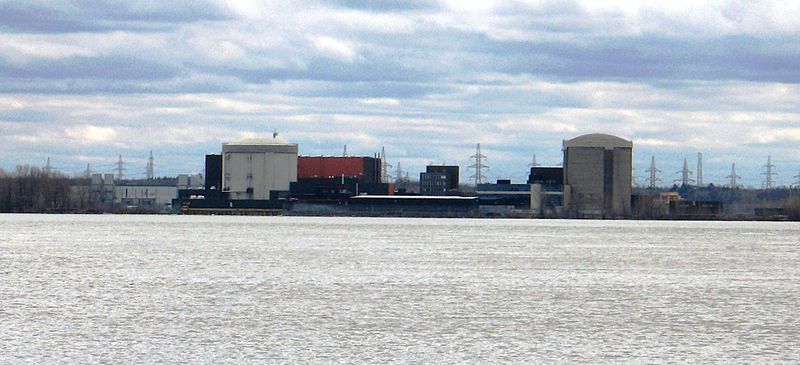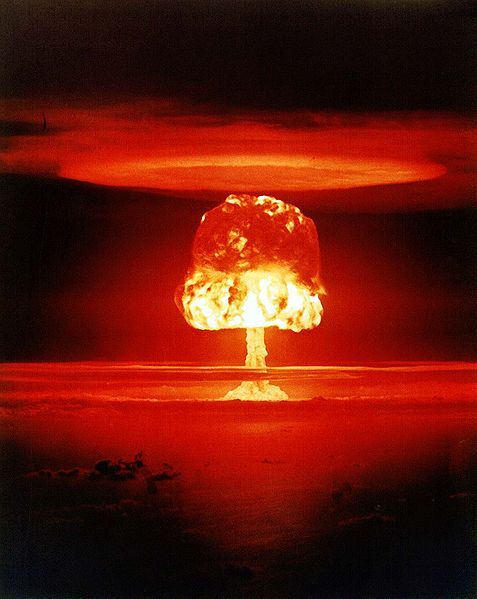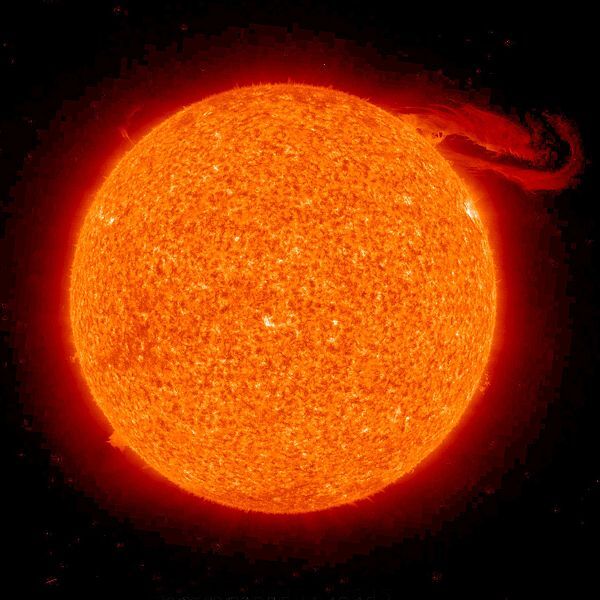Nuclear transformations are reactions which take place inside the nucleus of an atom and lead to the release of a very large amount of energy: nuclear energy.
Unlike chemical transformations, which only involve electrons located on the periphery of an atom, nuclear transformations take place within the nucleus. These transformations result in a change in the number of protons and neutrons (nucleons), thus changing the nature of the element.
The nucleus of an atom contains enormous reserves of energy. When a reaction takes place in the nucleus, it is called a nuclear reaction. It is exothermic and releases very large amounts of energy. The resulting energy from nuclear transformations can be used for various applications, such as the production of electricity.
Examples of nuclear reactions

Former Gentilly nuclear generating station in Quebec
Explosion of a nuclear bomb (left); nuclear reactions produced by the Sun (right)

